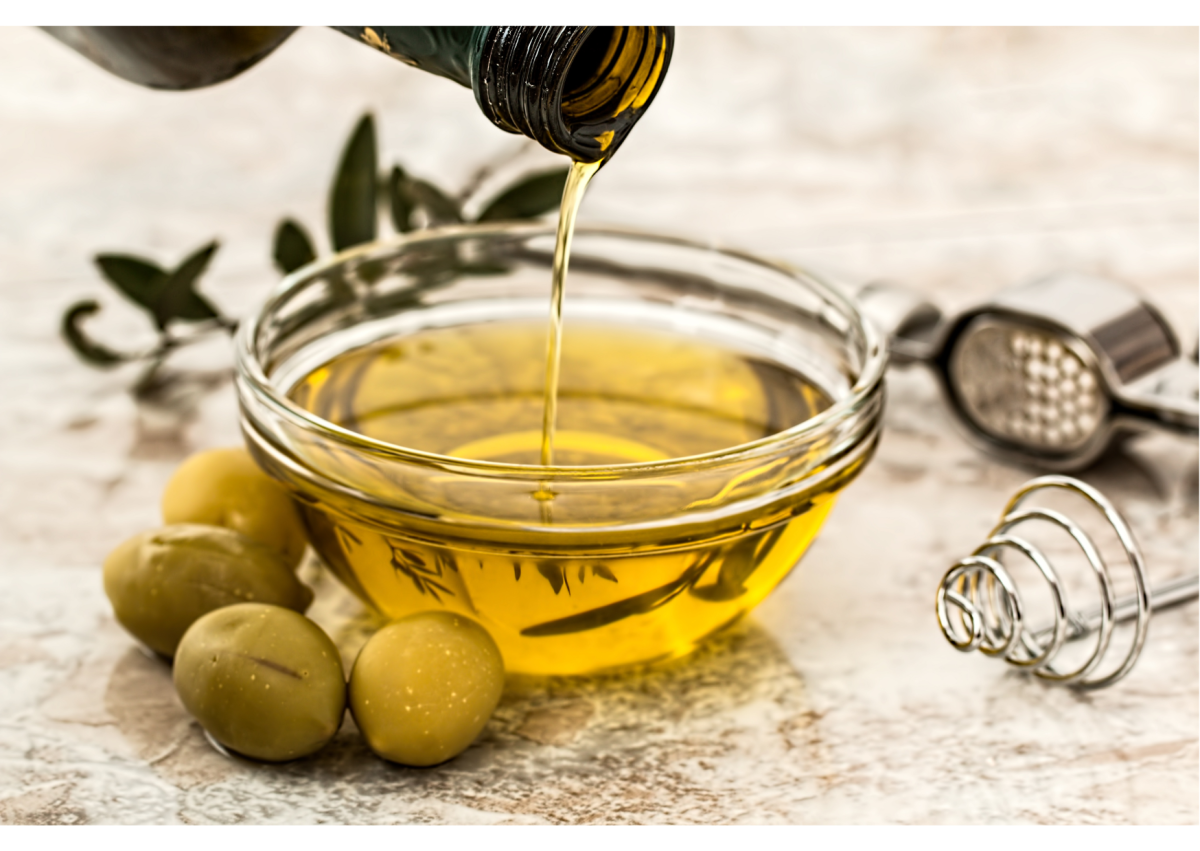A dietitian’s guide to olive oil and IBS
- Low FODMAP diet
Looking to discover whether olive oil and IBS go together? Read on to find out whether olive oil is on the menu for you.
Olive oil is a staple of the Mediterranean diet, and its health benefits have long been highlighted in the media.
This fruity, aromatic, rich oil is hailed for containing healthy fats, antioxidants, and polyphenols.
This article aims to guide you on whether you can have olive oil on a low FODMAP diet and any benefits it may have to your IBS.

What is olive oil?
Olive oil is the product of pressing olives, whereby different stages of the pressing produce different types of oil.
For example, extra virgin olive oil comes from the first mechanical pressing of the olives, meaning that the oil is not heated or chemically treated.
There are various grades of olive oil, each with distinct differences in terms of production method, quality, and health benefits (1).
Olive oil can be used as a salad dressing, a marinade for meats and vegetables, a bread dip, and even a skin moisturizer.
Is olive oil low FODMAP?
Olive oil is 100% low FODMAP as it is pure fat and contains no carbohydrates; it can, therefore, be eaten in a low FODMAP diet (2).
Unfortunately, this does not mean that you can consume olive oil as much as you like. Olive oil is high in fat, which has been shown to affect gut motility in excess.
Therefore, we recommend keeping to a 1 tablespoon serving size at a time.
The benefits of olive oil
Olive oil has various health benefits. The majority of its fats are monosaturated fats, which have been shown to increase the level of “good” cholesterol (HDL) (3).
Furthermore, it contains powerful antioxidants, such as vitamin E and polyphenols. Our article “Polyphenols in olive oil explained” goes into more detail.
Olive oil’s healthy fats and antioxidant compounds may improve heart health and blood pressure and protect against chronic diseases (4).
For those suffering from constipation as a symptom of IBS, there has been research to show olive oil’s mild laxative effects.
However, this research was done on hemodialysis patients, and there is currently no evidence to show its effectiveness in IBS.
To read more about using olive oil for constipation, check out our article: “How to use olive oil for constipation”.

Which olive oil is the best?
Not all olive oils are created equal. Several different types are available, each with its own unique characteristics and production methods.
Extra virgin olive oil is the highest quality and most flavourful olive oil available. It is made from the first pressing of the olives, without any heat or chemicals involved (5).
This minimal processing helps retain the natural flavours, antioxidants, and nutrients present in the olives.
Extra virgin olive oil has a low acidity level (less than 0.8%) and a distinct fruity taste. It is best enjoyed as a finishing oil or for drizzling over salads and vegetables.
While extra virgin olive oil can be pricier, a cheaper alternative is regular virgin olive oil.
Although its flavour profile is not as intense, it is still a good choice due to its high nutritional value.
Summary
Whether you’re looking to add olive oil to your daily diet or you’re planning your next trip to Greece, olive oil can certainly be a part of your low FODMAP diet.
Not only is olive oil low FODMAP, but it contains numerous health benefits from antioxidants and polyphenols.
To reap the most benefits from your olive oil, try to choose cold-extracted extra virgin olive oil.
Written by Stella Gordon, Student Dietitian, reviewed by Kirsten Jackson, Consultant Dietitian BSc Hons, RD, PG Cert